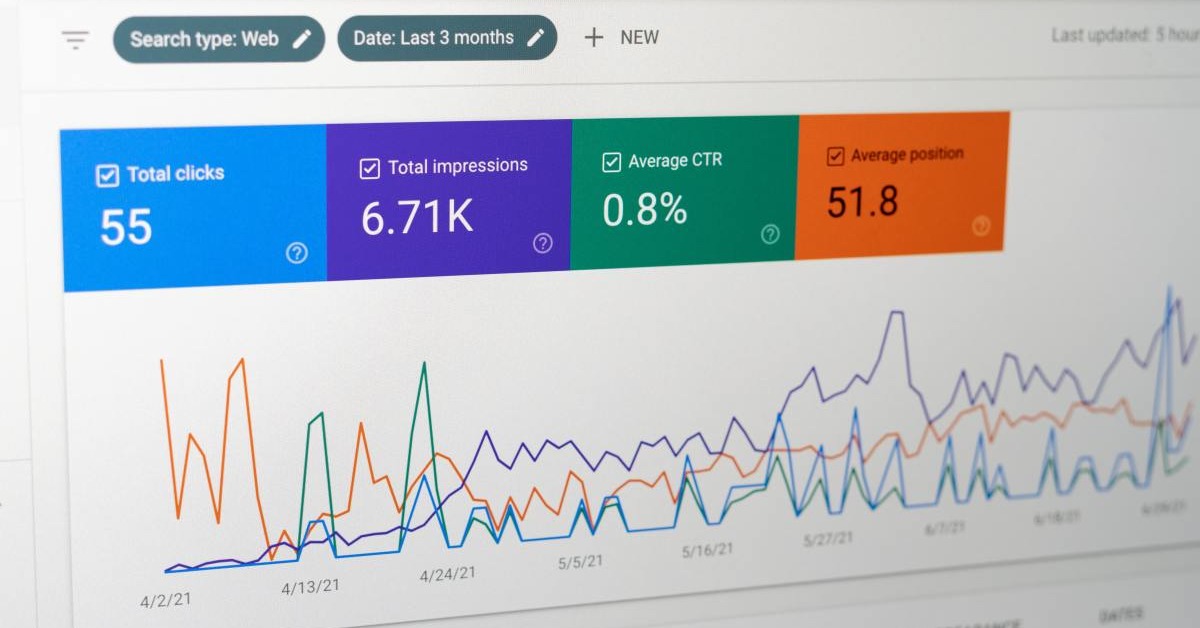
How to Choose an Online MBA
Choosing a high-quality online MBA program that complements your long-term [...]

As increasingly sophisticated technology continues to permeate and impact all aspects of commerce, you may not be surprised to learn that demand for business analytics jobs is on the rise “now that companies of all sectors—not just those dubbed specifically as tech companies—are in need of data-savvy employees.” Indeed, CIO—the magazine for everything technology- and IT-related—recently surveyed over 800 information technology (IT) leaders for their “2021 State of the CIO” report and found that “the most challenging IT jobs to fill are those involving cybersecurity (21 percent), AI/machine learning (20 percent), data science/analytics (19 percent) and DevOps/DevSecOps/agile (12 percent).”
Businesses of all stripes seek skilled business analytics professionals to fill the gaps—and they have the business imperatives and resources to do so. Where will these data professionals come from? At many companies, they’ll come from within, through efforts to upskill and reskill valuable and experienced employees.
This article offers a guide to business analytics careers (2022) and also covers:
| University and Program Name | Learn More |
|
Pepperdine University:
Online Master of Business Administration
|
|
|
Boston College:
Master of Science in Applied Analytics
|
If you have the knowledge and training to make sense of the mass quantities of optimizable data, numerous career opportunities await you. Many of these pay six-figure salaries, or close to it. Let’s look at some of the job titles, responsibilities, and skills needed to succeed and move ahead in the field of business analytics.
So what is the secret to moving up in the business analytics field? Training—acquiring new skills and knowledge of the latest techniques and technologies for working with big data, coupled with years on-the-job experience and a track record of successes.
While 29 percent of respondents to Skillsoft’s “2021 Skills and Salary Report” cited wanting a salary increase or preparing for product migration/new technology as their reason for seeking out training, the number one reason—for 74 percent of IT professionals surveyed—was to improve their skill set.
A number of business analyst certifications can help bolster your expertise and expand your career opportunities, including the Certification in Business Data Analytics (CBDA), Certified Advanced Level Business Analyst (CALBA), and Professional in Business Analysis (PBA).
As well, Indeed lists hard skills like “technical experience with Python, Apache Spark, NoSQL/Hadoop, SQL, Data Visualization, Machine Learning, Artificial intelligence… (and) an in-depth understanding of organizational data flow and its use in management decision-making” as critical to success in business analytics. (To gain proficiency in any of these areas, one can take stand-alone courses online or in-person classes at universities or community colleges.)
But as Forbes points out, soft skills are also essential: “Strong communication skills are a must. Companies are looking for hybrid candidates that can do it all.” A Harnham spokesperson notes that businesses “want a person who is able to understand the technical side of the job, such as the coding languages, but they also want someone who isn’t nervous about speaking openly with stakeholders in a way that is digestible.” Business analysts must be well-versed in soft skills like communication, organization, critical thinking, problem-solving, and decision-making to help them solve complex business problems and build strong business strategies.
These soft skills (and much more) can be acquired and honed through a business analytics master’s program. Schools offer a variety of business analytics master’s degree: an MBA in business analytics, a Master of Science in Business Analytics (MSBA), Master of Science in Data Analytics with a business analytics concentration (MSDA) or a Master of Science in Business Intelligence and Analytics (MSBI&A). While each master’s degree is designed to fulfill different business analytics career goals, all help you acquire the skills and training you need to advance in this field.
If you plan to pursue a career in the field of data management, earning a business analytics master’s makes sense—it should create opportunities and typically results in higher pay. Fortune reports that “Business analysts with just a bachelor’s degree earn about $70,000 as a base salary, on average,” while “business analysts in North America who have a master’s or doctorate earn 17 percent more than those people in the same roles who hold undergraduate degrees.”
While you may not need a master’s degree in business analytics to begin your career, you’ll almost certainly need one to move up the ladder in the industry. Many analysts with years of work experience decide to pursue this professional graduate degree to master the latest technologies in data mining, predictive analytics, and data visualization. An MSBA or related degree like a business analytics MBA prepares students for careers in big data and business administration.
Different business analytics master’s programs have a different focus or strength. Stevens Institute of Technology’s MSBI&A program teaches students to “(h)arness the power of data science to drive your organization’s competitive advantage and leverage tools like A.I., deep learning, and predictive analytics to challenge assumptions and make evidence-based decisions.” This professional degree combines statistics, information technology, data, computer science, and business intelligence to recognize patterns from large sums of data.
The business analytics master’s core curriculum includes classes in technical skills and knowledge like data mining, predictive modeling, decision making, data engineering, machine learning, cognitive computing, forecasting, data models, statistical analysis, and text and image processing techniques. In addition, students hone their proficiency in programming languages like Python, Scala, Java, SQL, and SAS, as well as data visualization and modeling tools like Excel, Visio, and Powerpoint.
Additional classes help develop soft skills like problem-solving, critical thinking, time management, organization, negotiation, leadership, and verbal and written communication.
The selection and time allotted for electives vary by program—some allow for up to 15 credit hours of electives, others allow more, and some offer no electives at all. Elective courses enable students to personalize their studies to fit career goals and interests, focusing on topics like consumer insights, operations and supply chain analytics, applied data science, and pricing strategies.
Concentrations and specializations also are program-specific. Some master’s programs organize specializations into course groupings like Data and Methods, Healthcare, or Marketing Analytics, with a list of required coursework to choose from. Others weigh in more heavily on the technology end of things or business operations.
An MSBA program typically requires two years of full-time, on-campus study. But because many of these programs are designed for working professionals, the timelines can be longer or shorter, as needed. Some accelerated business analytics programs can be completed in a single year, while other part-time formats can be drawn out over four or five years. It all depends on the employment commitments of the student. Most schools offer online and hybrid options for even greater flexibility.
Top online and on-campus Master of Science in Business Analytics include:
Questions or feedback? Email editor@noodle.com

Choosing a high-quality online MBA program that complements your long-term [...]

MBA programs impart knowledge and skills. Those skills will serve [...]

A master's degree in statistics offers graduates a breadth of [...]

A information technology master's degree can position you for management [...]

A Master of Business Administration (MBA) in information technology (IT) [...]
Categorized as: Business Intelligence & Analytics, Business & Management